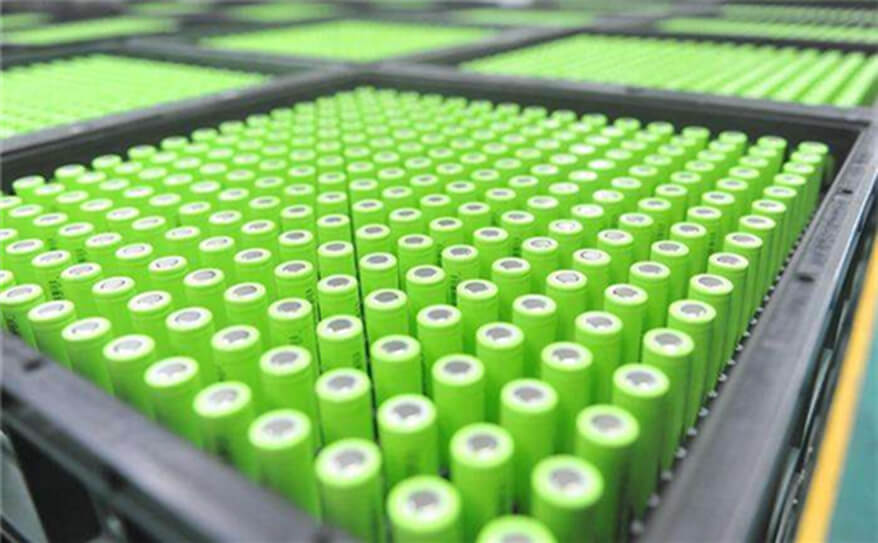Do lithium batteries corrode?
Sep 23, 2019 Pageview:4290
The idea of lithium batteries first started making rounds in 1912. When a scientist named G. W. Lewis started working on them. However, they were not introduced till early 1970s. These batteries use Lithium metal as an anode, like the name suggests. Their main redeeming quality is their high density charge. They can produce voltages anywhere from 1.5V to almost 3.7V. This high voltage range sets them apart from the other batteries available. This depends on the designing of the battery as well the quality of lithium compound used. They are well known for their long life. And their higher cost per unit. Around six different types of lithium metal chemistry can be used to develop this battery. All these comes with their own pros and cons. However, the best suited is Lithium Iron Phosphate (LiFePO4). This electrode is safe to use and is tolerant to abuse. This also provides a long life and great thermal balance.
Modern day lithium batteries can survive millions of charging cycles. This is why they are a favorite among hand held devices. Other commonly used electrode in lithium batteries is made up of graphite.
lithium batteries are common favorite to be used in medical devices. And also portable electronic devices such as mobile phones. Applications of lithium batteries are endless. Such as PDAs, blood pressure/ diabetes meters and many other portable devices. These batteries are higher in cost than the readily available alkaline batteries. But they provide a much longer life span, which attracts the user.
Lithium batteries can also be used to replace the alkaline batteries in all the devices. They might be costly to replace but they sure do compensate with their longevity. They also provide the added advantage of not replacing them again and again.
One of the best advantage of using a lithium battery is that it does not poof out harmful gases, such as oxygen and hydrogen. Also no dangerous electrolytes are used in it, such as potassium hydroxide (KOH) or Sulphuric acid (H2SO4). Also Lithium batteries boosts of a strong molecular bond among their ions. Which gives them the signature long life and thermal balance.
Another advantage of using Lithium battery is that it can house electrical energy equal to almost three or four of alkaline batteries. Yet it is still smaller in size than them and is portable. Giving it an edge over the other batteries. It can be easily used in hand held devices such as your Personal Assistants or your mobile phones.
Even though the lithium batteries boost of their long life, they do corrode.
Why do lithium batteries corrode?
Modern day batteries, lithium batteries have one huge issue. And that is the issue of them discharging or dying completely. Like every other thing in a battery chemistry is the culprit behind this. Let’s start with a simple explanation. Every battery consists of two main components, the anode and the cathode. Together these are called as electrodes. The anode is the positive electrode whereas the cathode is the negative electrode. One is made up of Lithium in lithium batteries and the other one is generally graphite. The two major components are separated by a thin porous separator. The main function of this separator is to keep the two electrodes apart. This saves the battery from electrical shortening. The third part of a battery is an electrolyte in which all the other components are submerged.
When the battery is charging, the negative electrode pushes its ions towards the positive electrode. Similarly, when a battery is charging it is pushing the cathode ions towards the anode. And while we are using the battery that is “dis-charging” it. The ions move towards the negative electrode. Hence we are pushing the ions back towards the cathode. This action is reversal of the charging action.
This process of charging and recharging of the battery can cause some of its battery life to shorten. Charging cycles are the reason for corrosion. In chemical terms a battery can go down by 5% lithium ions per thousand charge cycles. This is what causes our battery to corrode over time.
Battery corrosion can cause the batteries to die over time. And damage your device. But batteries these days are long lasting. And can survive thousands of charging cycles over and over again.
How do you keep a lithium battery from corroding?
There is no convectional way to stop the batteries from corroding. They will corrode according to their own set rate. You can try to minimize the rate of corrosion of batteries but that is pretty much about it.
Preventing corrosion is also hard because corrosion is in the nature of batteries. But if your battery is not in use then one way to prevent corrosion is by storing it below 40 degrees temperature. This won’t completely prevent the corrosion but will lessen its effect. Also batteries that are not in use only corrode 5% per month. This increased shelf life increases the life span of the battery. Causing it to recharge less.
Will lithium battery leak?
Major reason for lithium batteries leakage is the thermal runaway. Too much heat can cause lithium ions to heat up and explode. When the ions are heated too much, this causes the entire battery to heat up and explode.
The same mechanism is the culprit behind the leaking of a battery. The leaking of a battery is generally milder than exploding. And less of a safety hazard. It can also be caused by increased pressure inside a cell. The chemical changes or the heat from charging increase the cell increases the pressure inside the cell.
Both of these are the output of poor manufacturing. And also improper or excessive charging. Some ways to prevent leaking or exploding are to be cautious while charging. Also try to buy these batteries from a reliable source. Also store these batteries in a cool temperature but please do not freezer them. Also try to discharge them at a constant rate that is not too fast neither too slow.
- Prev Article: How Do Lithium Ion Batteries Explode?
- Next Article: Do lithium batteries explode?
Leave Message
Hottest Categories
-
Hottest Industry News
-
Latest Industry News











